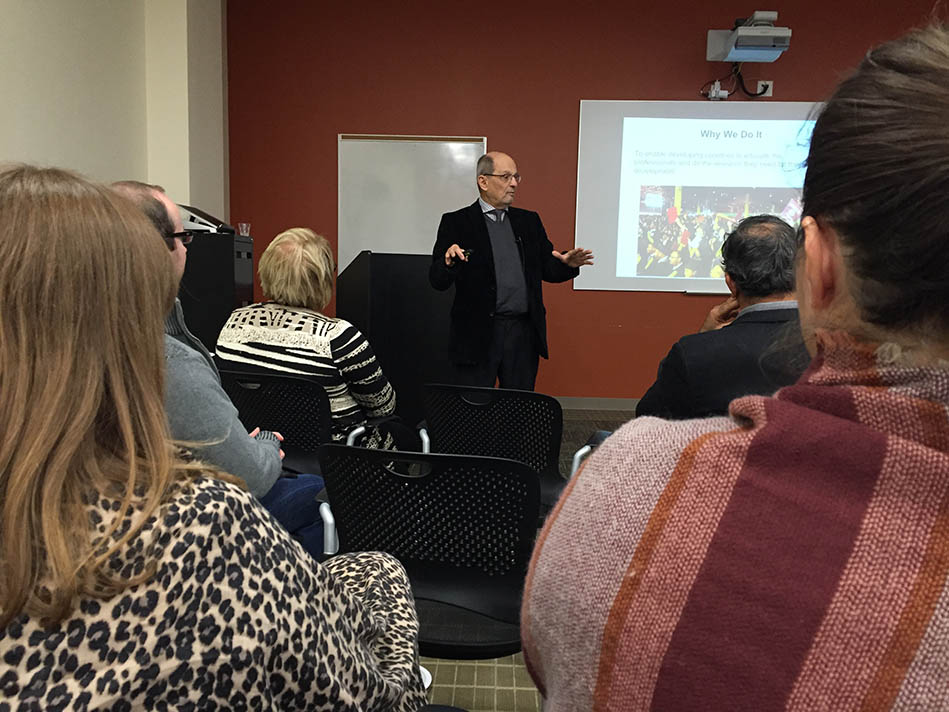Knowledge-sharing volunteers can close the ‘education gap’ to help the world’s poorest countries, advocates say

Ethiopia is home to 96 million people. As one of the world’s poorest countries, it is disproportionately affected by cardiovascular disease, yet there are only 13 cardiologists to serve the entire country.
Nepal, much smaller in population but similarly disadvantaged, features rural villages where no one has ever seen a doctor at all.
In both cases, volunteers from Canadian universities are helping to improve access to care, by working strategically on shoestring budgets to transfer their knowledge to people in those countries, so they can make the changes their countries need most.
Canada’s universities, including McMaster, can do a great deal to improve the quality of life in the world’s poorest countries, says the founder of a charity that connects academic volunteers with projects in developing countries.
Steven Davis, founder and executive director of Academics Without Borders, visited campus Nov. 25, where he told an engaged audience about the organization’s efforts in areas that extend well beyond medical training, including crisis preparation and improving democracy and human rights – all through higher education.
A volunteer himself, Davis explained that all AWB projects are initiated by local organizations, so they directly address established needs. Since 2009, AWB has taken on 75 projects in 17 of the world’s poorest countries, ranging from curriculum interventions to helping found a new university.
McMaster is part of AWB’s Network of Universities, which enables members to establish campus chapters for student volunteers.
Karl Stobbe, an experienced rural physician and Regional Assistant Dean for the Niagara Campus of the Michael G. DeGroote School of Medicine, told the audience about his own experience in Nepal. He is leading a five-year project to assist the Patan Academy of Health Sciences, which trains medical personnel specifically to serve rural populations. Ten rural physicians from Canada are volunteering one month a year in Nepal.
The lunch-and-learn session was presented by the Paul R. MacPherson Institute for Leadership, Innovation & Excellence in Teaching and Learning and McMaster’s Office of International Affairs.
Peter Mascher, McMaster’s Associate Vice-President, International Affairs, said AWB’s mandate aligns neatly with McMaster’s mission of global engagement, and that as one of the world’s leading research universities, it has a lot of expertise to offer.
Arshad Ahmad, McMaster’s Associate Vice-President, Teaching & Learning, told the audience that the “wealth gap” that separates the world’s richest and poorest people is profound, but that the “education gap” is actually wider, but that there are many opportunities to mend it.


